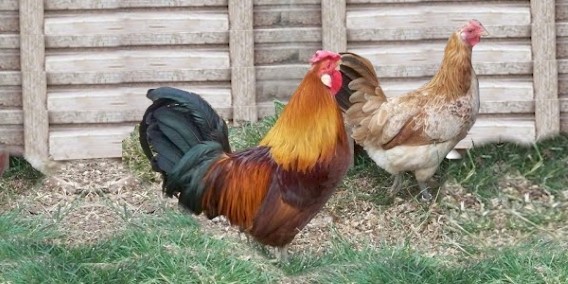Marsh Daisys
are a rare breed of chicken originating in Lancashire, England. Their name may
be related to its origin in a marsh-like area, or that its large rose comb
resembles the flower of the Marsh Daisy.
Beginning in
the 1880s in Southport, Lancashire, Old English Game, roosters were crossed
with Malay hens to create the foundation for the breed. Black Hamburgs, White
Leghorns, and Sicilian Buttercups were also added to complete its
characteristics. They become a proper, defined breed in England in 1913.
Marsh Daisy
chickens are a hardy, economical barnyard chicken, but they are slow to mature.
They are a lightweight breed of standard fowl, with males at a maximum of 2.95
kilos (6.5 pounds) and females 2.5 kilos (5.5 pounds). A good forager, they
prefer being kept free range. Though generally calm, they are active and can
fly. The hens lay a fair number of tinted eggs. Their distinguishing
characteristics are a 'Rose comb', 'white earlobes' and 'willow green legs'.
They are known
for being flighty, slow to mature, and hardy.
The Marsh
Daisy has never had any populations of consequence abroad, and has never been
recognized for showing by organizations such as the American Poultry
Association. Extremely rare even in its homeland, it is listed as an endangered
breed by the Rare Breeds Survival Trust of the United Kingdom. It was once
found in Black, Brown, Buff, Wheaten and White color varieties, the Wheaten and
Brown are the most common, the Buff white and black have been reintroduced by
dedicated breeders.

